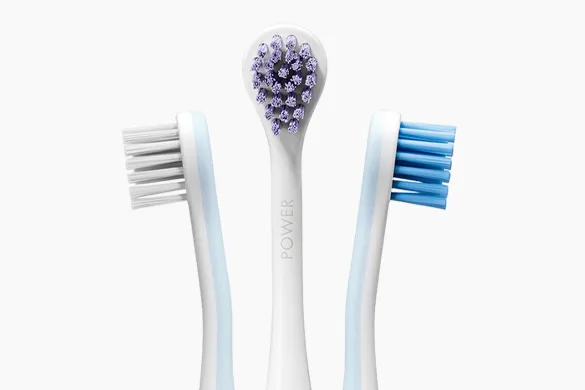




Manual toothbrushes vs. electric toothbrushes: A comparative overview—this age-old debate continues as people search for the best oral hygiene solution. With advancements in dental technology, electric toothbrushes have gained popularity, promising superior plaque removal and ease of use. Meanwhile, manual toothbrushes remain a reliable, affordable choice for millions worldwide. But which one is truly better for maintaining optimal oral health?
In this article, we’ll explore the pros and cons of manual toothbrushes vs electric toothbrushes, considering factors like effectiveness, cost, convenience, and sustainability. Whether you’re looking for a budget-friendly option or a high-tech solution, understanding the differences can help you make an informed choice. Let’s dive into this comparative overview and find the best toothbrush for your needs.
The Pros and Cons of Going for Manual Toothbrushes vs Electric Toothbrushes
When choosing between manual toothbrushes vs electric toothbrushes, it’s important to weigh their advantages and drawbacks based on your dental health needs, budget, and lifestyle. Both options serve the fundamental purpose of cleaning teeth, but they differ in efficiency, cost, and usability.
Manual Toothbrushes: Pros and Cons
Manual toothbrushes have been a staple in oral care for decades, offering a simple and cost-effective solution for maintaining dental hygiene.
Pros:
- Affordability: Manual toothbrushes are significantly cheaper than electric options, making them accessible to everyone.
- Portability: Lightweight and easy to carry, they don’t require charging or batteries, making them ideal for travel.
- Variety: Available in different bristle types, head sizes, and handle designs to suit various needs.
- Full Control: Users can adjust pressure manually to prevent excessive force on gums and enamel.
Cons:
- Less Effective Plaque Removal: Studies suggest electric toothbrushes remove more plaque and reduce gingivitis more effectively than manual brushes.
- Requires Proper Technique: Effective brushing depends on the user’s technique, which may lead to inconsistent cleaning.
- No Built-in Timers: Unlike electric toothbrushes, there’s no built-in feature to ensure optimal brushing time.
Electric Toothbrushes: Pros and Cons
Electric toothbrushes have revolutionized oral care with automated brushing motions designed to enhance cleaning efficiency.
Pros:
- Superior Cleaning Power: Oscillating or sonic technology helps remove more plaque and debris with less effort.
- Built-in Timers: Many models come with timers to encourage brushing for the recommended two minutes.
- Ease of Use: Ideal for individuals with limited mobility, such as arthritis sufferers, as the brush does most of the work.
- Advanced Features: Some models include pressure sensors, multiple cleaning modes, and app connectivity for personalized oral health tracking.
Cons:
- Cost: Electric toothbrushes are more expensive upfront and require ongoing replacement of brush heads.
- Charging/Battery Dependency: Some models need frequent charging, which can be inconvenient during travel.
- Less Environmentally Friendly: Regular battery use and disposable brush heads contribute to waste compared to manual toothbrushes.
Ultimately, the best toothbrush depends on personal preference, dental needs, and budget. Manual toothbrushes remain a reliable, affordable option, while Electric toothbrushes offer advanced cleaning benefits. Choosing the right one involves considering your oral hygiene goals and consulting with a dentist for professional recommendations.
what are the Questions to ask when one is feeling Indecisive over buying toothbrushes?
Great question! When you’re feeling indecisive about buying a toothbrush, asking the right questions can help clarify your needs and guide your decision. Here are some key ones to consider:
Personal Needs & Oral Health
- Do I have specific dental concerns (sensitive gums, plaque buildup, braces)?
- Has my dentist recommended a particular type of toothbrush?
- Do I struggle with manual brushing technique or need additional help cleaning my teeth effectively?
Budget & Cost with manual toothbrushes vs Electric Toothbrushes
- Am I willing to invest in a higher-cost electric toothbrush, or do I prefer an affordable manual option?
- What are the long-term costs (replacement heads, batteries, charging)?
Convenience & Features
- Would a built-in timer help improve my brushing routine?
- Do I need portability for travel, or is charging/battery life a concern?
- Would smart features (pressure sensors, app connectivity) make a difference for me?
Sustainability & Environmental Impact
- Is one option more eco-friendly or waste-conscious?
- Do I prefer biodegradable manual brushes or rechargeable electric ones?
Lifestyle & Preference
- Do I enjoy the simplicity of a manual toothbrush, or do I prefer the tech-driven experience of an electric one?
- Will using an electric toothbrush motivate me to brush more consistently?
Answering these questions can help you determine which toothbrush aligns best with your oral health, habits, and needs!
The best go to toothbrushes for you with manual toothbrushes vs Electric Toothbrushes.
key Takeaways
- The Pros and Cons of Going for Manual Toothbrushes vs Electric Toothbrushes.
- Manual Toothbrushes: Pros and Cons
- Electric Toothbrushes: Pros and Cons
- What are the Questions to ask when one is feeling Indecisive over buying toothbrushes.
- The best go to toothbrushes for you with manual toothbrushes vs Electric Toothbrushes.
